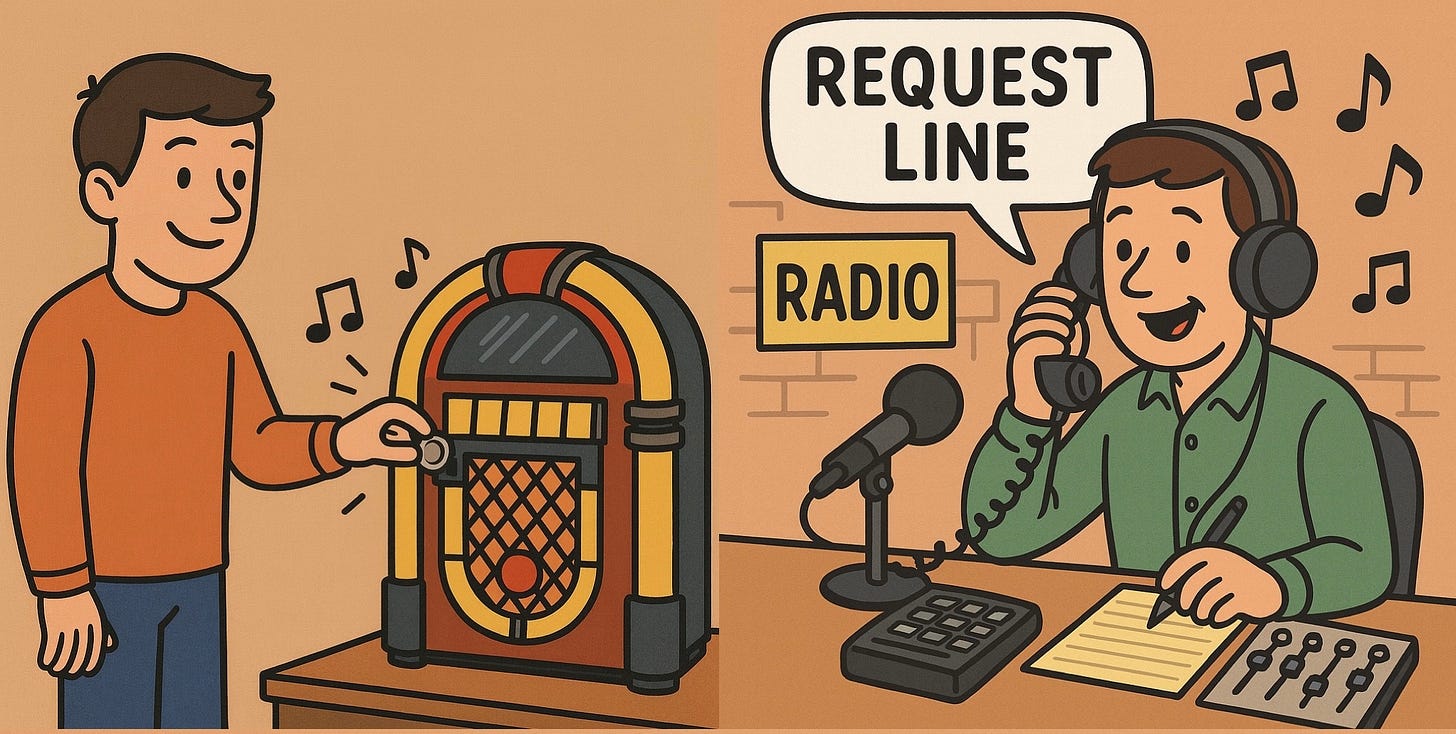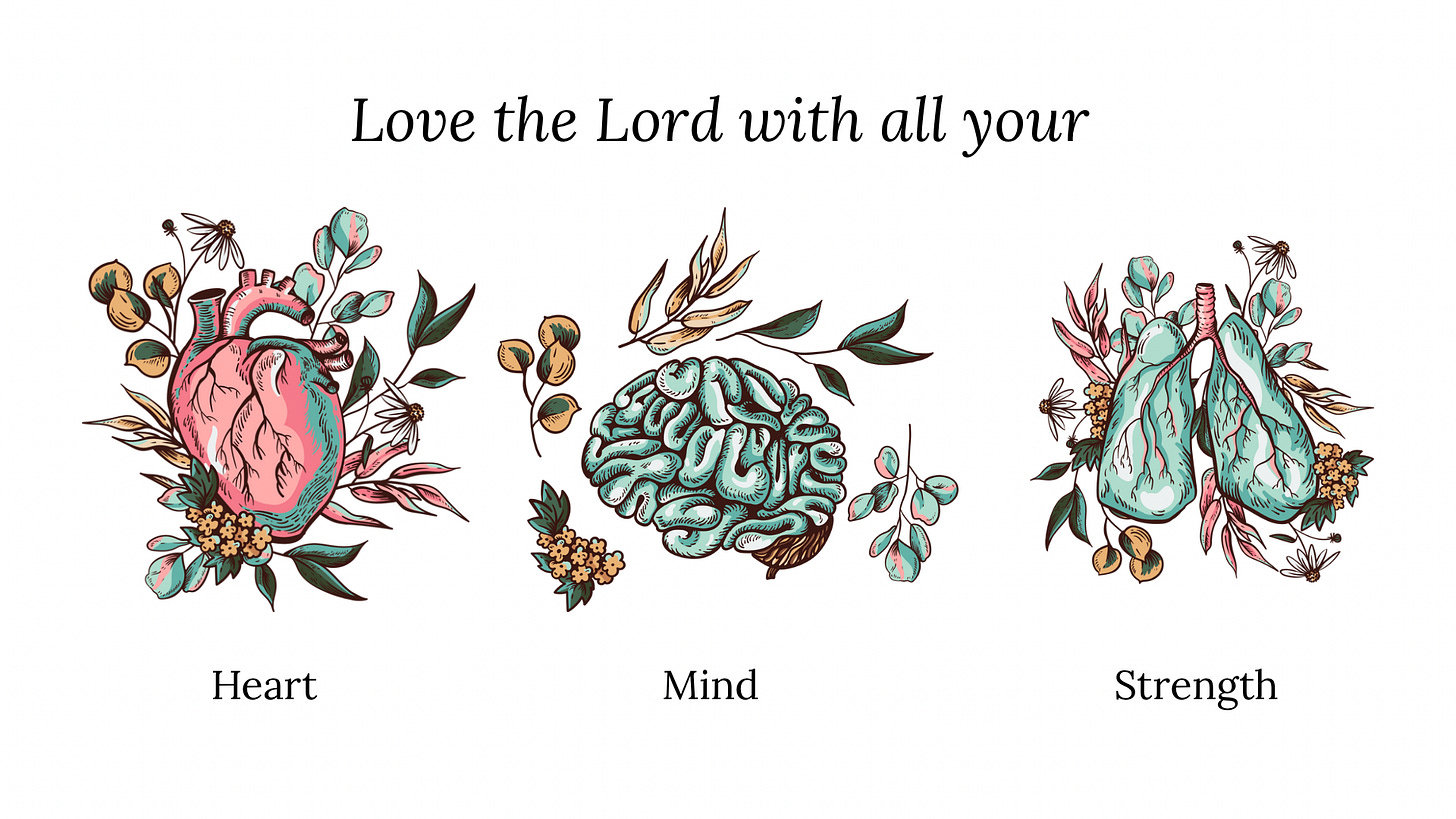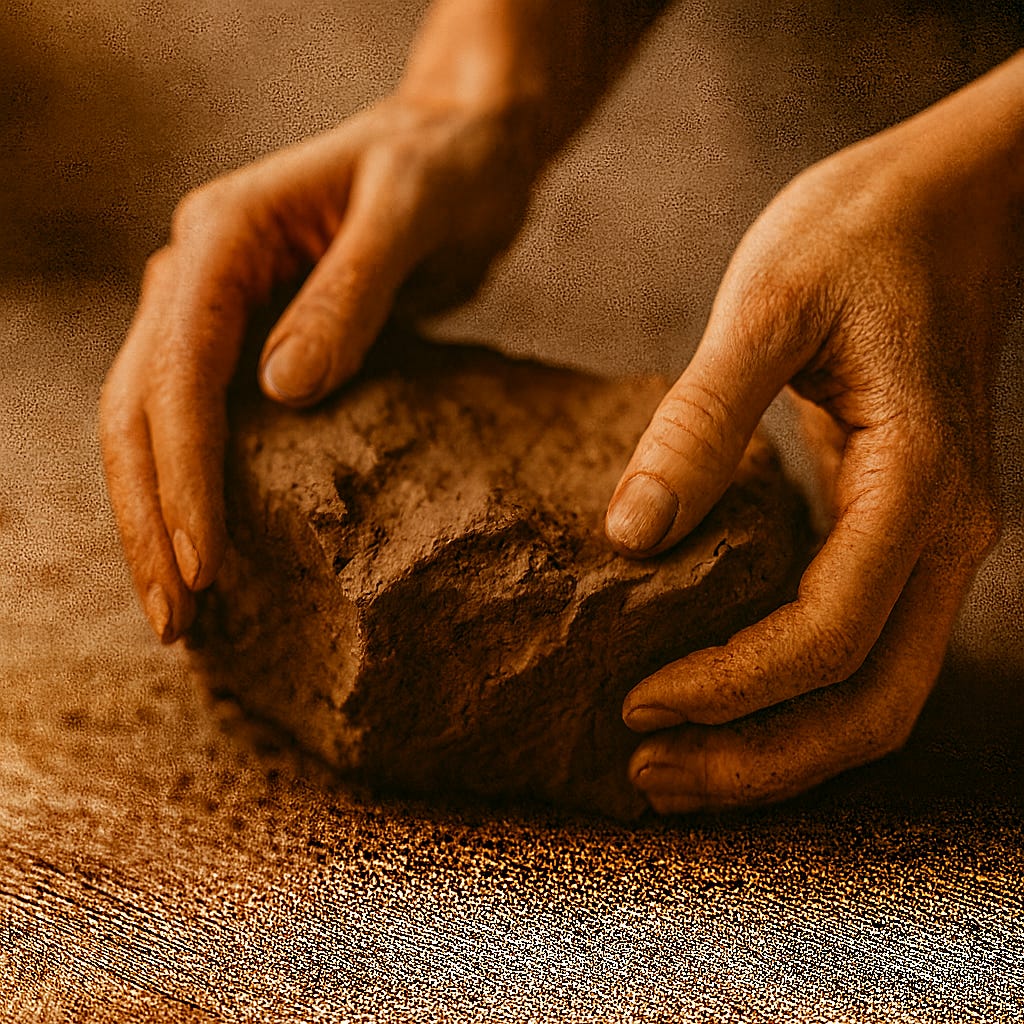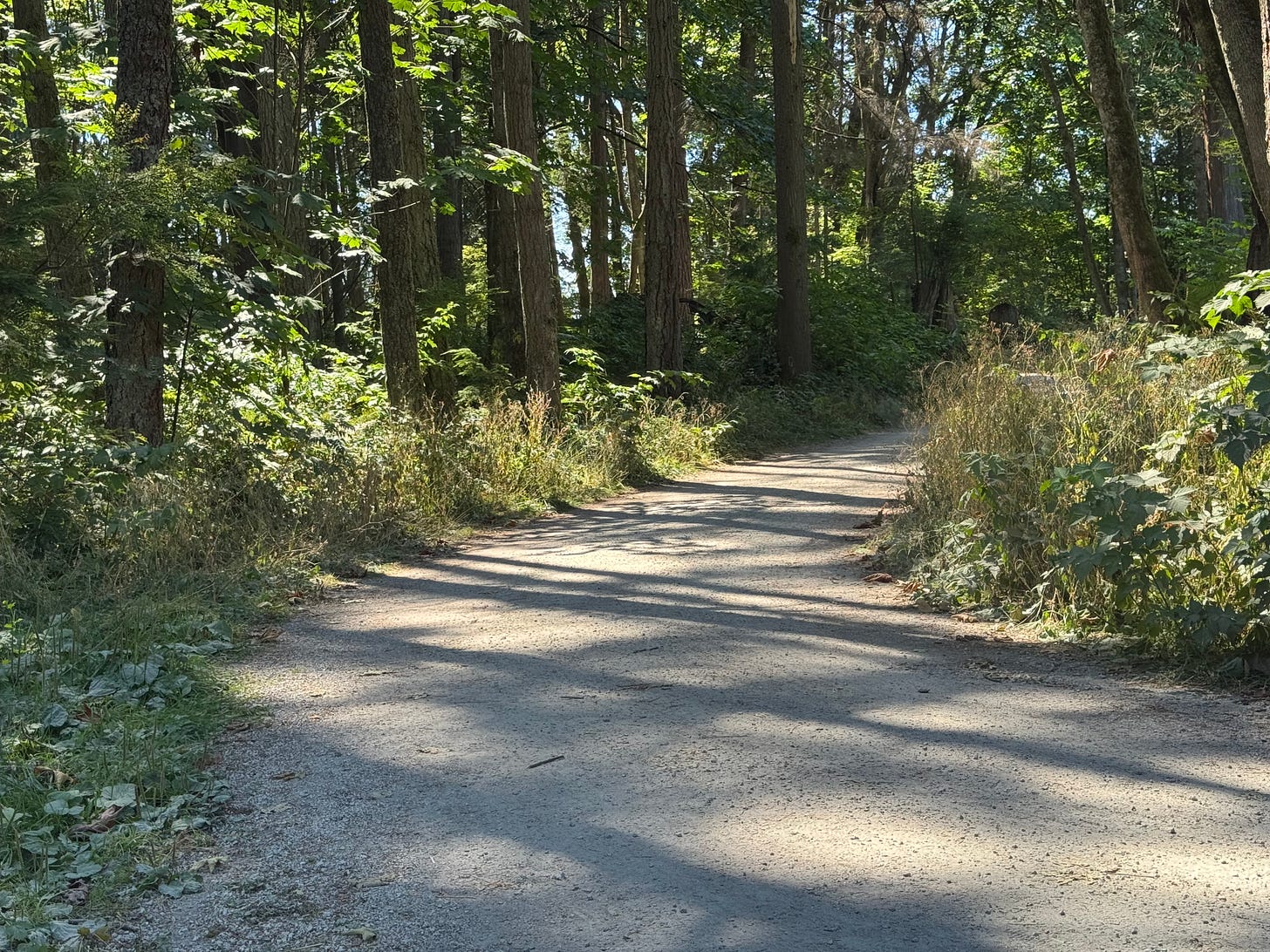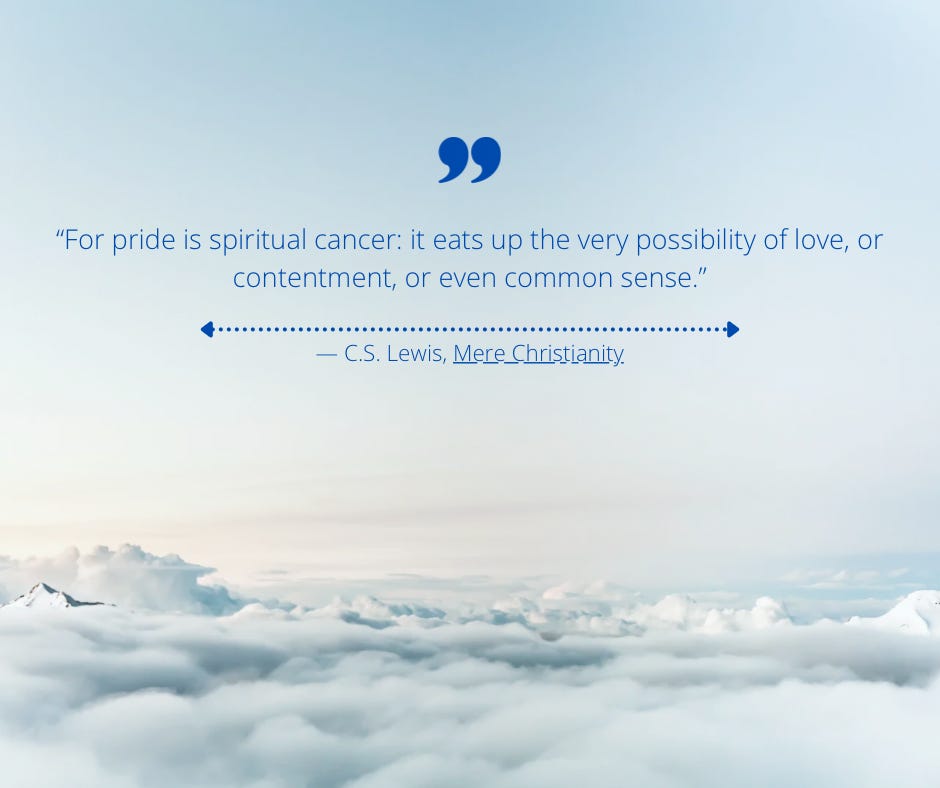Prayer As Formation
revisiting prayer, its meaning and purpose
G-d isn’t a request line. He isn’t a jukebox either.
Q. Does that mean we should not make petition and intercession part of our prayer ritual? A. No, of course not.You can and should make petition and intercession a part of your prayer ritual. It’s not a matter of mutual exclusivity, it’s a matter of holism and complementarity.
Contemplation draws you close to the Divine and it strengthens your discernment and directs your petition and intercession. Let me ask you, reader— do you petition g-d for others in your prayer time?
Where is your heart when you pray?
Matthew 22:36-37 :: 36 “‘Teacher, which is the greatest commandment in the Law?’” 37Jesus replied: ‘Love the Lord your God with all your heart and with all your soul and with all your mind.’ 38 This is the first and greatest commandment.” (Deuteronomy 6:5)
Are you a disciple or a used car salesman? I think this question matters a great deal because it reveals how we see g-d—it reveals whether we see g-d as a currency we can use to bolster our self interest or an entity to love and serve. The way you see g-d and the way you approach g-d informs the way you pray, because it determines why you pray.
Whom do you want to serve? What do you carry in service to your master? Sword versus Cross. Pick one. Do you seek unity in Christ or conformity with yourself from those around you? Do you pray to affirm your egoistic identity or do you pray to express your love and gratitude to G-d? We sell objects that we’ve designated commodities, an item exchanged for currency. We pick team members because we have decided to participate in a competition with a view to win. Loving G-d means we don’t regard Him as a commodity or a competition.
How do you love G-d?
How do you see prayer? As a chore or obligation? As a petition? As an identity-affirming act? As a contemplative act? As a form of communication with the Divine? I listened to a Q and A session about prayer with Brian Zahnd held a year ago at Trinity Church in Wenatchee, Washington State. Zahnd spoke about prayer as a contemplative exercise, and a means to connect with G-d. He described prayer as akin to a hiking path.
What if we saw prayer as integral to our spiritual formation? What if we saw prayer as a path we took—an act we engaged to build ourselves and learn stillness and connection to g-d? What if we saw prayer as an opportunity to allow ourselves to be formed by g-d?
What if we saw prayer as an experiential reminder that, when it comes to worship and religious practise, faith which we grow and nurture, (not our rote actions or anything we do), matters the most to g-d? What if we could see that serving others—whether through parenting, caregiving, or family life in general— serves as prayer? What if prayer could teach us about intentionality and faith?
So, I like the conceptualisation of prayer as a path to take, as an act I engage in to build myself from within, to strengthen and feed my soul, to learn stillness and connection to g-d, to allow myself to be formed by g-d.
From Psalm 23
The Lord is my shepherd; I shall not want.
2 He maketh me to lie down in green pastures: he leadeth me beside the still waters.
3 He restoreth my soul: he leadeth me in the paths of righteousness for his name's sake.
4 Yea, though I walk through the valley of the shadow of death, I will fear no evil: for thou art with me; thy rod and thy staff they comfort me.
Q. What is prayer?
A. An invocation or act through which we seek to activate a rapport with g-d through deliberate communication.
Intention matters. G-d knows your heart.
The Jesus Prayer :: Lord Jesus, Son of G-d, have mercy on me, a sinner.
Note, I am ecumenical, meaning I believe that many denominations and religious paths which others take have equal value to the path I choose and can lead to g-d and salvation. I do not need to be right, and it’s not my place to be the judge of souls. It is only my place to love all in service of the One Who Made Me.



